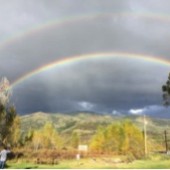
Abstract: In his landmark book Native Science (2000), indigenous educator Gregory Cajete eloquently articulates the motivations and questions that drive this study. For Cajete, effective education of our time entails “finding heart.” Finding heart is an active process within and beyond the person. It is evident in ethically and spiritually grounded work and being that embody meaningful connection to and care for others and nature (p. 288). This article relates to the process of finding heart through sustainability education. It presents a grounded-theory-based study of aspects of sustainability education that motivate or detract from activating hope and agency among undergraduate college students. Specific aspects of conceptual and social engagement, as well as the duration of these effects, are examined in some depth, with the voices of students themselves reflecting the diversity, depth, and power of their experience. The author concludes by suggesting that generating hope and agency among students is a vitally important outcome for sustainability education as part of the larger movement for sustainability. She also suggests curriculum design considerations for effectively activating hope and agency among students.
Continue Reading
Abstract: This essay examines Randall Amster’s book Peace Ecology as a critical intervention articulating vital connections among discourses from peace and justice studies (on one hand) and the most vexing problems addressed by sustainability studies (on the other): from violent conflict and social inequity to environmental injustice and global ecocide. Reading this dialogue through the lens of hope, the author argues that Amster’s synthesis of this research provides effective tools for helping educators, students and practitioners of sustainability to generate new thought – and direct action – around these issues. By cataloguing and analyzing the many successes of ecological peacebuilding without absolving the paradigms of thought that continue to propagate war against people and planet, Amster empowers us to avoid both the trap of despair and the delusion of complacent optimism in order to foster the conditions that promote human beings’ mutually-beneficial peace and coexistence with each other and with the Earth.
Continue Reading